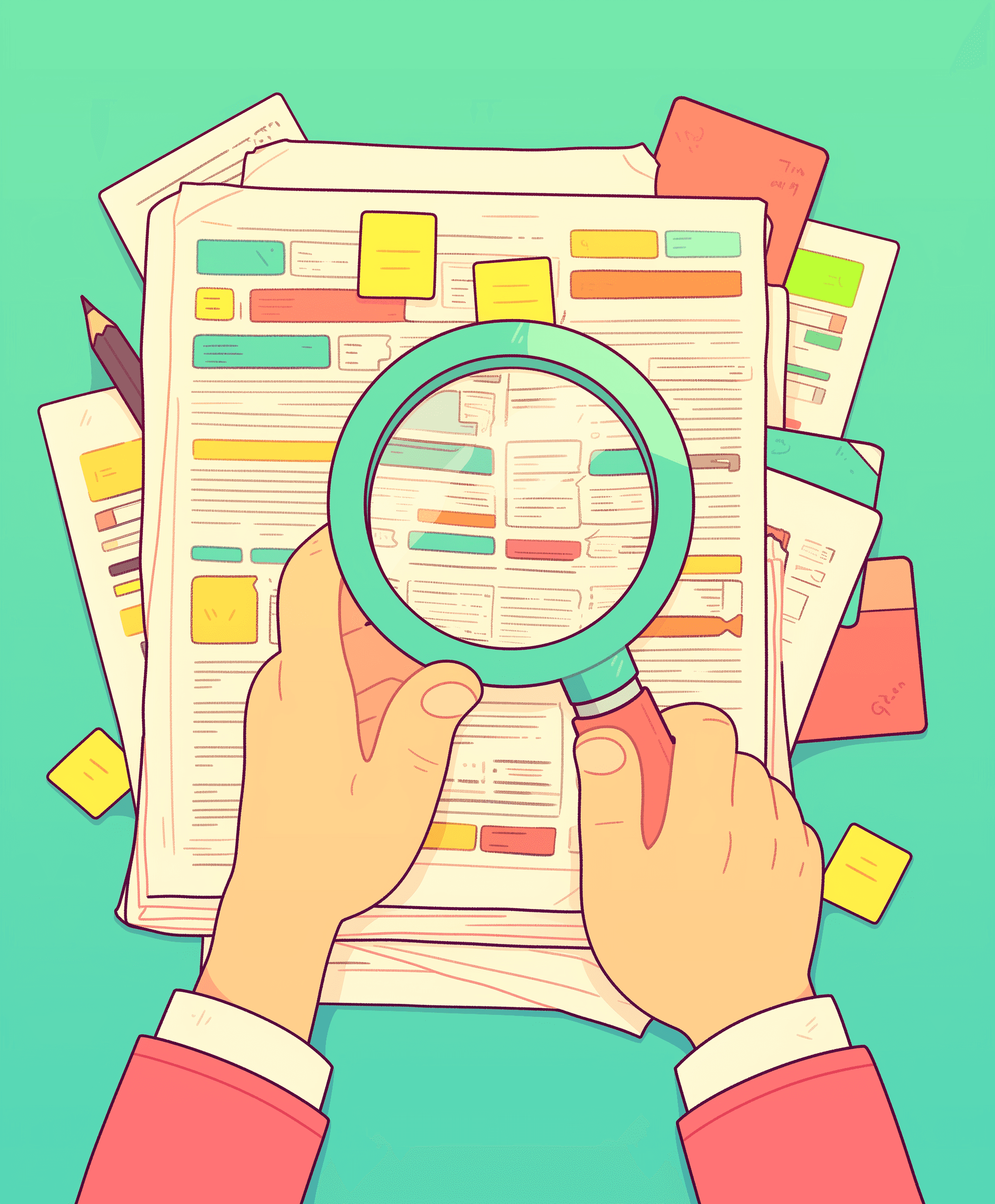Personality assessment
Aug 11, 2024
Exploring the 16 Personalities: A Guide to Understanding Yourself and Others
In our journey to understand what makes us unique, the Myers-Briggs Type Indicator (MBTI) model, also known as the 16 personalities, stands out as one of the most popular personality frameworks. Developed by Katharine Cook Briggs and her daughter, Isabel Briggs Myers, the model is rooted in Carl Jung's theories of personality. The 16 personalities framework provides a structured way of understanding our preferences, strengths, and potential growth areas, making it valuable in both personal and professional contexts.
So, what are these 16 personalities, and how can they enhance self-awareness and interpersonal relationships? Let’s dive into the basics.
Understanding the 16 Personalities Model
The MBTI sorts personality into 16 types, each represented by a unique four-letter code. These codes come from combinations of four key dimensions, each representing a spectrum of preferences:
Extraversion (E) vs. Introversion (I): How you focus your energy.
Extraversion (E): Draws energy from social interaction and the outer world.
Introversion (I): Recharges through introspection, solitude, and inner focus.
Sensing (S) vs. Intuition (N): How you process information.
Sensing (S): Focuses on concrete details and present realities.
Intuition (N): Looks for patterns, possibilities, and big-picture ideas.
Thinking (T) vs. Feeling (F): How you make decisions.
Thinking (T): Makes decisions based on logic, objectivity, and analysis.
Feeling (F): Values empathy, harmony, and personal values in decision-making.
Judging (J) vs. Perceiving (P): How you approach the outside world.
Judging (J): Prefers structure, planning, and decisiveness.
Perceiving (P): Enjoys flexibility, spontaneity, and adaptability.
Each personality type combines these preferences, creating a four-letter code that represents the way we interact with the world, process information, make decisions, and structure our lives.
The 16 Personalities
Here’s a brief overview of each of the 16 personality types, organized by four primary categories: Analysts, Diplomats, Sentinels, and Explorers.
1. Analysts (Intuitive and Thinking types: INTJ, INTP, ENTJ, ENTP)
INTJ (Architect): Strategic, insightful, and independent. INTJs excel in creating systems and solving complex problems but may prefer working alone.
INTP (Logician): Curious, open-minded, and driven by a love for learning. INTPs thrive in roles that require creativity and analysis, often questioning traditional ways of thinking.
ENTJ (Commander): Bold, assertive, and natural leaders. ENTJs are skilled at organizing and directing efforts to achieve ambitious goals.
ENTP (Debater): Quick-witted, intellectually curious, and adaptable. ENTPs enjoy debate, exploring different perspectives, and developing innovative solutions.
2. Diplomats (Intuitive and Feeling types: INFJ, INFP, ENFJ, ENFP)
INFJ (Advocate): Empathetic, insightful, and idealistic. INFJs seek purpose and meaning, often choosing to work in roles that allow them to help others.
INFP (Mediator): Compassionate, creative, and introspective. INFPs value authenticity and are motivated by their personal beliefs and values.
ENFJ (Protagonist): Charismatic, altruistic, and inspiring. ENFJs are natural leaders who excel in motivating and organizing others for a cause.
ENFP (Campaigner): Enthusiastic, imaginative, and free-spirited. ENFPs bring energy to their environments and are passionate about connecting with others.
3. Sentinels (Sensing and Judging types: ISTJ, ISFJ, ESTJ, ESFJ)
ISTJ (Logistician): Reliable, organized, and practical. ISTJs value structure and consistency, often excelling in detailed and rule-based tasks.
ISFJ (Defender): Kind, responsible, and observant. ISFJs are often highly supportive and loyal, seeking to create harmony in their environments.
ESTJ (Executive): Efficient, outgoing, and results-oriented. ESTJs are natural managers who enjoy implementing structure and leading others.
ESFJ (Consul): Friendly, caring, and sociable. ESFJs are attuned to others’ needs and enjoy fostering community and helping others succeed.
4. Explorers (Sensing and Perceiving types: ISTP, ISFP, ESTP, ESFP)
ISTP (Virtuoso): Practical, action-oriented, and adaptable. ISTPs enjoy hands-on problem-solving and working independently.
ISFP (Adventurer): Sensitive, curious, and spontaneous. ISFPs are artistic and compassionate, often drawn to creative and personal pursuits.
ESTP (Entrepreneur): Energetic, perceptive, and charismatic. ESTPs enjoy taking risks and tackling new challenges, often thriving in dynamic environments.
ESFP (Entertainer): Fun-loving, sociable, and empathetic. ESFPs are spontaneous and enjoy connecting with others and making the most of every moment.
Applying the 16 Personalities in Real Life
The 16 personalities model is more than just a framework; it’s a practical tool that can help individuals, teams, and organizations navigate various challenges. Here’s how:
Self-Discovery and Growth: Knowing your personality type can shed light on your strengths, weaknesses, and preferred ways of working. It can guide you in finding career paths, relationships, and personal goals that align with your natural inclinations.
Team Dynamics: Understanding different personality types within a team can help improve communication and collaboration. Knowing how your teammates prefer to approach tasks can reduce misunderstandings and foster a more inclusive environment.
Career and Leadership Development: The 16 personalities can also provide insights into suitable roles, motivating factors, and leadership styles. For example, ESTJs may excel in project management, while INFPs may find fulfillment in creative or advisory roles.
Conflict Resolution: Recognizing personality differences can help resolve conflicts by promoting empathy and understanding. When you know that an INTJ values efficiency, for instance, or that an ESFJ cares about group harmony, it becomes easier to communicate and find common ground.
Embracing the 16 Personalities for Better Relationships
The 16 personalities model reminds us that personality is complex and multifaceted. By embracing these personality types, we can appreciate the unique ways in which people think, feel, and act. Understanding the 16 personalities not only fosters personal growth but also encourages empathy, making it a valuable tool for creating fulfilling relationships, effective teams, and supportive communities.
Whether you’re just beginning to explore personality types or are looking for deeper insights into yourself and others, the 16 personalities model offers a comprehensive, relatable way to understand what makes us who we are.
More blogs to read

Digital transformation
Unleashing the Power of Digital Transformation: ASSESS’s Organizational Assessment Approach
ASSESS’s digital transformation assessment provides a comprehensive roadmap for digital transformation, focusing on digital readiness and digital maturity.
Continue reading

Ability assessment
Unlocking Talent Potential with ASSESS Focus: A Revolutionary Cognitive Ability Tool
ASSESS Focus, a cognitive ability assessment tool, designed to empower recruiters and HR professionals with meaningful insights into candidates’ ability.
Continue reading

Personality assessment
Exploring the 16 Personalities: A Guide to Understanding Yourself and Others
The MBTI sorts personality into 16 types, each represented by a unique four-letter code.
Continue reading

Personality assessment
Understanding the Big Five Personality Traits and Their Impact on Success
The Big Five—Openness, Conscientiousness, Extraversion, Agreeableness, and Neuroticism—capture the core dimensions of personality.
Continue reading

Sales assessment
Building Success: Essential Sales Competencies for High-Performing Teams
Sales competencies—core skills, behaviors, and attributes that influence sales performance—are critical for developing, and retaining top-performing salespeople
Continue reading

Sales assessment
Unlocking Sales Potential: How Assessments Drive Recruitment and Performance
Skills like communication, persuasion, and resilience are vital, but they’re not always easy to gauge in an interview.
Continue reading

Sales assessment
Enhancing Recruitment and Development with Sales Assessments
A sales assessment is a psychometric tool designed to evaluate traits, competencies, motivators, and cognitive abilities relevant to sales roles.
Continue reading

Assessment center
Types of Assessment Center Exercises
This post provides a list of potential assessment center exercises that could be used in talent selection or development.
Continue reading

Assessment center
Designing an Effective Assessment Center
Assessment Centers offer a structured, immersive approach to evaluate candidates' skills, behaviors, and potential, providing a rich basis for decision-making.
Continue reading

Leadership
What is Leadership Development Assessment?
Leadership assessment for development focuses on identifying a leader’s strengths, gaps, and growth potential to guide targeted development efforts.
Continue reading

Career orientation
Most Relevant Career Orientation Assessment Frameworks
Career orientation assessments provide valuable insights into an individual’s strengths, preferences, and interests.
Continue reading

Employee engagement
Top Five Employee Engagement Drivers: Backed by Research
Employee engagement is critical for organizational success, impacting productivity, retention, and overall company performance.
Continue reading

Assessment
Talent Assessment Using ISO 10667: Ensuring Quality and Consistency
To standardize talent assesment practices and ensure their quality, ISO 10667 provides a comprehensive framework.
Continue reading

Talent acquisition
How to Select the Right Assessment Tools for Your Organization
Choosing the right assessment tools is crucial for organizations aiming to make informed decisions about recruitment, employee development, and talent selection
Continue reading

Recruitment
Hiring Millennials: How Talent Assessments Help Build an Independent and Innovative Workforce
As millennials continue to make up a larger share of the workforce, companies must adapt their hiring strategies to attract and retain this dynamic generation.
Continue reading

Competency
ASSESS Grammar Test: Boosting Workplace Communication Skills
Proper grammar is essential for conveying messages accurately, whether in emails, reports, or client interactions.
Continue reading

Competency
Manages Ambiguity: Navigating Uncertainty with Confidence
In today’s dynamic business environment, leaders often face situations where information is incomplete, outcomes are uncertain, or events unfold unpredictably.
Continue reading

Competency
Decision Quality: A Cornerstone of Effective Leadership
Decision quality represents a leader’s ability to make well-considered, timely, and effective decisions, even in complex or ambiguous situations.
Continue reading

Competency
Instills Trust: A Key Leadership Competency
Trust is a cornerstone of effective leadership and organizational culture.
Continue reading

psychometrics
Can We Assess Toxic Workplace Traits?
As we become more attuned to the detrimental effects of toxic styles, the importance of assessing behaviors that contribute to toxicity has become critical.
Continue reading

Ability assessment
The Power of Cognitive Ability Tests in Talent Management
Cognitive ability tests are effective tools for evaluating potential to excel in roles that demand analytical thinking, quick learning, and problem-solving.
Continue reading

360 degree feedback
360-Degree Feedback: Benefits, Challenges, and Best Practices
360-degree feedback has become a popular tool in talent development, particularly for enhancing leadership skills and fostering continuous improvement.
Continue reading

Psychometrics
How to Use Personality Assessments to Improve Team Dynamics
Effective teamwork is essential for organizational success, and one of the best ways to enhance team dynamics is through personality assessments.
Continue reading

Psychometrics
The Science Behind Psychometric Testing: How Assessments Drive Better Hiring Decisions
The Science Behind Psychometric Testing: How do assessments drive better results using scientific methods, such as validity and reliability testing.
Continue reading

Organizational surveys
Measuring Organizational Health: Key Metrics and Why It Matters
Discover how measuring organizational health through key metrics like engagement, leadership, and culture alignment can boost long-term success and adaptability
Continue reading

Assessment tools
Assess International vs. AssessFirst: A Comparative Overview
Assess International vs. AssessFirst: A Comparative Overview
Continue reading

Personality assessment
The 16 MBTI Personality Types: A Detailed Overview
MBTI categorizes people into 16 distinct personality types based on four key dichotomies. They shape how people interact with the world.
Continue reading

Cognitive ability
Understanding Cognitive Ability Assessments: Unlocking Mental Potential
Cognitive ability assessments are tools that measure the intellectual capacity, such as reasoning, attention, memory, and learning.
Continue reading

Coaching
The Role of Assessment in Coaching: Unlocking Potential through Insight
One of the primary benefits of using assessments in coaching is that they promote self-awareness. Assessments provide objective, data-driven insights
Continue reading

Personality assessment
Unlocking Self-Awareness with the Enneagram Test: A Path to Personal Growth and Understanding
Explore the Enneagram test, a powerful tool for self-awareness, personal growth, and improving relationships through understanding motivators and behaviors.
Continue reading

Personality assessment
Understanding the DISC Personality Assessment: A Pathway to Better Communication and Teamwork
Discover how the DISC personality assessment improves communication, enhances teamwork, and strengthens relationships by understanding behavior styles.
Continue reading

Personality assessment
The Importance and Value of the MBTI Assessment: A Tool for Self-Awareness and Team Dynamics
Discover the importance and value of the MBTI assessment in fostering self-awareness, improving communication, and enhancing team dynamics.
Continue reading

Talent Management
Understanding Generation Z: Engaging the Restless Workforce
Generation Z, born roughly between 1997 and 2012, is entering the workforce with a unique set of expectations and challenges. Companies seeking to engage and retain Gen Z talent need to understand what drives this generation.
Continue reading

Talent management
Why do employees stay at your company
Talent Management, embodied in attracting, retaining, and motivating superior employees is a critical issue as it is amongst the top concerns for modern cor ...
Continue reading

Career
Unlocking Career Success with ASSESS Career Orientation: A Comprehensive Approach
Choosing the right career is one of the most significant decisions you will make in life. It shapes not only your professional trajectory but also impacts y ...
Continue reading

Assessment
What is an Assessment Center?
The term assessment center has been widely used in the fields of industrial psychology and human resources management for more than 50 years ...
Continue reading

Assessment
Personality Psychology & Job Performance
Personality psychology is a branch of psychology that focuses on defining and explaining personality as well as identifying individual differences between p ...
Continue reading

Leadership
Chameleon Leader: Situational leadership model
Leadership theory has been studied for many years. There are many different theories that define leadership from different perspectives, all expressing thei ...
Continue reading

Career
Understanding your core values as a human
You place great emphasis on understanding the values that shape your thoughts and lifestyle. Your quest for finding meaning in life drives you to seek align ...
Continue reading

Tools
Can Values Be Measured Using Assessment Tools?
The question of whether values can be accurately measured through assessment tools has been a topic of debate in psychological, organizational, and educatio ...
Continue reading

Phsycometrics
Understanding the different types of psychometric testing categories
Psychometric testing has become a valuable tool in various fields, including recruitment, personal development, and career orientation
Continue reading

Talent
Talent abiligy post pandemic
While many businesses have withstood the economic shock brought on by Covid19, nonetheless making amendments within the organization’s practices and strateg ...
Continue reading

Products
The role of ASSESS OCM in recruitment and professional development
In today’s fast-evolving workplace, organizations are continuously seeking ways to optimize their talent management processes. One of the most effective too ...
Continue reading

Psychometric, Assessment
How to Prepare for a Psychometric Assessment
Psychometric assessments are becoming a common part of the recruitment process and personal development programs. These tests measure a variety of cognitive ...
Continue reading

Psychometric, Assessment
What is a Psychometric Assessment Test?
Psychometric assessment tests have become an essential tool for businesses, educational institutions, and individuals seeking to understand personality trai ...
Continue reading
Organizational
360˚ feedback
Pulse surveys
Development index
Employee engagement
Individual Development
Career Orientation
Motivation
Focus
Important
Home
Blogs
Products
Solutions
